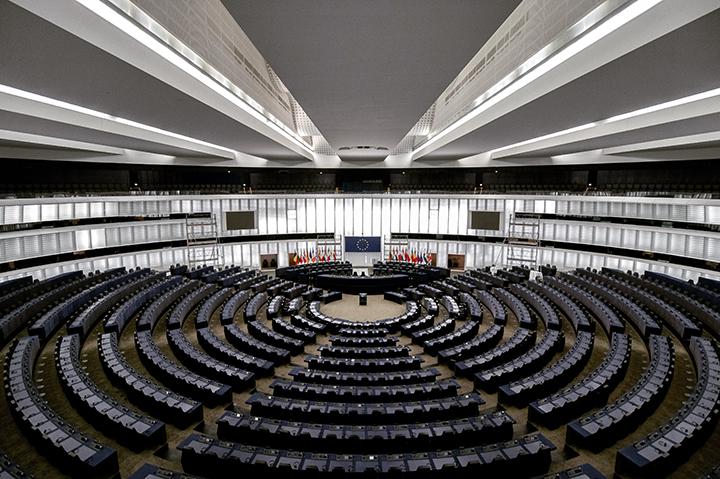| Website Exclusive • April, 2013 |
The rumor flashed across the Internet last winter: the Obama administration is going to use a United Nations arms treaty to get around the Second Amendment and ban all guns.
In the wake of the Sandy Hook Elementary School shootings and the renewed push for “gun safety” (the current politically correct term) the rumor was all too believable. But was it true?
At the time the panic started, the answer was “no.” The U.N. had been working on an anti-gun treaty for years but had never actually produced a result. Last fall, Obama gave his support to the next step of the process. That was enough to set the rumor mill churning.
But as of April 2, 2013, the long-rumored treaty finally exists. All Second Amendment supporters should be aware of it — but need not panic. It’s dangerous of course. The Obama administration and long-time anti-gunners in the Senate would love to use it to curtail firearms. But whether this treaty will ever affect U.S. gun owners is up to us.
What’s the treaty really about?
The Arms Trade Treaty, or the U.N. Small Arms Treaty, as it’s variously known, has been in planning stages since 2001. The U.N. general assembly formally endorsed the idea of creating of a treaty in 2006. A conference to come up with final, agreeable terms fell apart in July 2012. A second special conference in March 2013 also fell apart after some remarkably juvenile squabbling. However, this time the negotiations didn’t collapse until the final day — at which point representatives from UN countries had finished drafting a treaty.
Unable to get the unanimous vote from all 193 member nations required at the conference, treaty supporters took the draft to the full General Assembly of the UN, where it could pass on a simple majority vote. On Tuesday, April 2, it happened. The treaty received 154 “yes” votes, three “nos,” and 23 abstentious.
The United States (a sponsor of the treaty) voted in favor.
It’s still not time to panic. But it’s certainly time to go on alert.
Before the treaty can take effect, several things have to happen:
- 50 UN member nations have to ratify it
- 90 days have to pass after that before anyone at all is bound by it
- Even then, the treaty binds only those nations that have ratified it
The Obama administration cannot legally just impose the treaty on Americans. First, 2/3 of the U.S. Senate must vote to ratify it and that is going to be a tough hurdle to get over. Second, even after Newtown, politicians are aware that Americans don’t submit easily to anti-gunnery and that we’re likely to punish those who vote against the rights guaranteed by the Second Amendment. Third, the Republican party has finally shown signs of growing a spine where firearms are concerned. Very few Republicans would be likely to vote for the treaty, and some (especially the Young Turks led by Rand Paul) would fight hard against it.
Still, the political climate can change overnight and politicians are experts at doing things behind our collective backs (as they did when a coalition of four R & D senators covertly and not-strictly lawfully passed the Brady Bill when no one was looking).
We must never allow this treaty to be imposed on us. Its terms have frightening implications, not only for American gun owners, but for anyone anywhere who ever has to fight tyrants.
But what’s in this treaty that we need to be so leery of? After all, supporters claim that the treaty’s only aim is to better regulate the import and export of these arms between countries to ensure that weapons don’t get into the hands of pirates, warlords, drug cartels, and other organized forces that terrorize innocents. In fact, there’s language in the treaty that specifically says it isn’t supposed to ban guns or override any country’s own laws.
However, it doesn’t take a genius to see straight through this claim. First, illicit trade is by definition illicit. Criminals ignore laws. They ignore treaties. Look at international drug smuggling. Making import/export illegal has done nothing but attract ever more ruthless and clever criminals who have built global enterprises strong enough to challenge (or utterly corrupt) governments. The same will happen with weapons. Criminals will get weapons by raiding military depots, by smuggling, by black-market trading, through bribery, by killing police and soldiers, or in dozens of other ways.
In fact, that’s already how most bandits, drug lords, and warlords get their weaponry. In 2012 a study from Routledge Studies in Peace and Conflict Resolution concluded that very few arms were coming to bad guys through the import/export trade. Instead they were getting weapons through the “the diversion or misuse of officially authorized transfers” and other forms of theft. No treaty will prevent that; a treaty will only interfere with those who obey laws.
Also, the U.N.’s view has always been that government control of trade is inherently good and trade that is not directly controlled by government is always bad. Any international arms sales not explicitly authorized by governments would be illegal. A country could be under the thumb of a monstrous dictator, but according to the U.N. it’s a good thing for that dictator to be able to prevent his opponents from arming themselves. Had an arms treaty been in effect in the 1930s and 1940s, the United Nations would have sided with Hitler over his disarmed victims.
Those are the broad outlines. And they’re bad enough. But for Americans, there is an even more pervasive danger. According to the UK newspaper, The Guardian:
The treaty will not control the domestic use of weapons but requires countries that ratify it to establish national regulations to control the transfer of conventional arms, parts and components and to regulate arms brokers. It covers battle tanks, armoured combat vehicles, large-calibre artillery systems, combat aircraft, attack helicopters, warships, missiles and missile launchers, as well as small arms and light weapons. (Emphasis mine.)
Countries are required to have mechanisms in place “to prevent conventional weapons reaching the black market.”
In other words, if the U.S. Senate ratifies and Barack Obama (or any future president) signs this treaty, the United States government will be required to register and track every sale or other transfer of every firearm, component, and (presumably) round of ammunition ever sold in the country. There is simply no other way even to pretend to be meeting the requirements of the treaty. Only when every sale is tracked can a government claim it’s trying to “prevent” weapons from reaching the “blackmarket.”
Furthermore, if the U.S. failed to set up these draconian registration and tracking methods, other countries might cut off sales to us. As the the NRA’s Institute for Legislative Action said about an earlier draft of the treaty: “If you bought a Beretta shotgun … the U.S. government would have to keep a record of you and notify the Italian government about your purchase. … If the U.S. refuses to implement this data collection on law-abiding American gun owners, other nations might be required to ban the export of firearms to the U.S.”
And of course anyone who is aware of how government operates understands full well that registration enables eventual confiscation.
A final datum on the real intentions of the U.N. is contained right in the name of the agency that’s in charge of the treaty. It’s called the United Nations Office for Disarmament Affairs. Yes, the U.N., the old opponents of guns, and the Obama administration do indeed want to disarm us.
Can a treaty overrule the U.S. Constitution?
Let’s say that the worst happens. The Senate and the president impose its terms on the United States. Can a treaty really override the Second Amendment?
Unfortunately, that’s a fuzzy area.
Article VI of the U.S. Constitution states in part, “…all Treaties made, or which shall be made, under the Authority of the United States, shall be the supreme Law of the Land.”
But what happens if a treaty conflicts with something in the Constitution?
For many years now, it’s been common for alleged experts say that treaties are above, or can alter, the Constitution. This began around the early 1950s, when Eisenhower’s Secretary of State John Foster Dulles (who should have known better) outrageously claimed, “… congressional laws are invalid if they do not conform to the Constitution, whereas treaty laws can override the Constitution. Treaties, for example, can take powers away from Congress and give them to the President; they can take powers from the states and give them to the Federal Government, or to some international body and they can cut across the rights given the people by the Constitutional Bill of Rights.”
Such has been the “common wisdom” among D.C. wonks ever since. But that “wisdom” is based on nothing except statements from … well, authority figures like Dulles and others who’ve come in his wake.
Federal courts have ruled on treaties a multitude of times since the nation’s founding and the hodgepodge of rulings is complex. But one of the most substantive rulings came from the U.S. Supreme Court in the 1957 landmark case of Reid v. Covert. The language of that ruling is very clear. The decision states: “this Court has regularly and uniformly recognized the supremacy of the Constitution over a treaty.”
So no. Treaties do not overrule the Constitution. But the legal climate in the U.S. has degenerated dramatically since 1957. Government supremacists reign. Courts rarely restrain federal authority. More and more, the federal government clutches the nation in an iron fist, not using the Constitution but basing its power on unconstitutional executive orders, laws no legislator ever reads, thickets of bureaucratic regulation, secret agreements, and sheer overwhelming force.
The Constitution increasingly looks like a dead letter.
There is one constitutional argument left, though. It’s an argument that, if we ever have to pursue it in the real world, will shake the ground under our feet.
Everyone knows that, no matter whether treaties are equal to or above the Constitution, amendments to the Constitution are above the body of the Constitution. Furthermore, the first 10 amendments — the Bill of Rights — were passed as one. And the Constitution itself was ratified only on the condition that the Bill of Rights be added to it. The body of the Constitution primarily defines the structure and authority of the federal government and lists certain things that it is and is not authorized to do. The Bill of Rights, on the contrary, is entirely dedicated to placing strict limits on federal power while preserving (or attempting to preserve) the inborn rights of individuals and the powers of state governments.
Although the Bill of Rights has been badly abused and is hanging on by a few frayed threads, the ultimate Constitutional argument is this: The Constitution was allowed to exist solely because of the Bill of Rights was added to it. Without the Bill of Rights, the entire Constitution is void. If the Constitution is void, the entire federal government is without authority.
In Reid v Covert, Justice Hugo Black wrote, “The concept that the Bill of Rights and other constitutional protections against arbitrary government are inoperative when they become inconvenient or when expediency dictates otherwise is a very dangerous doctrine and if allowed to flourish would destroy the benefit of a written Constitution and undermine the basis of our government.”
Unfortunately, lesser lawyers can “prove” that night is day and day is night. They can argue (perhaps successfully) that “the right to keep and bear arms shall not be infringed” really means “government can regulate your guns right out of your hands.”
However, millions of American gun owners know what their rights really are.
Should the federal government or the United Nations push too far, it’s a solid bet that millions of American gun owners will conclude that the powers in Washington, D.C. have finally overreached all bounds and are truly, absolutely without legitimate authority.














